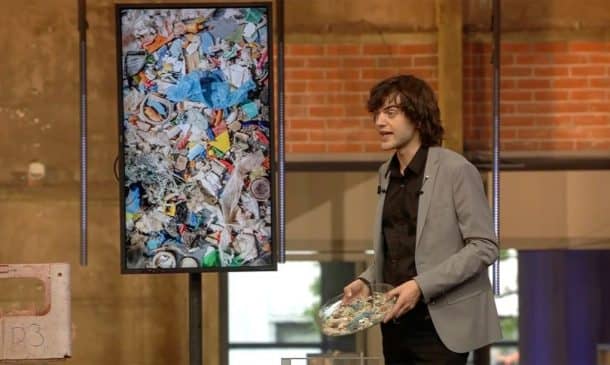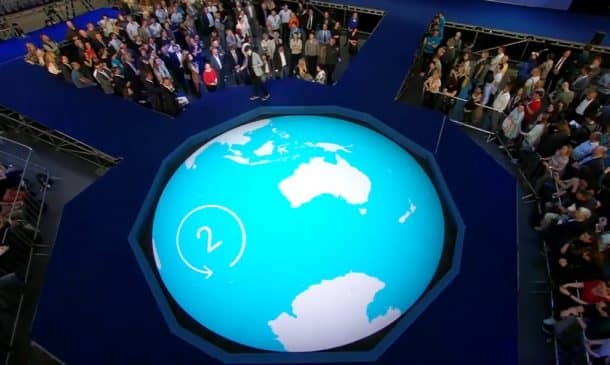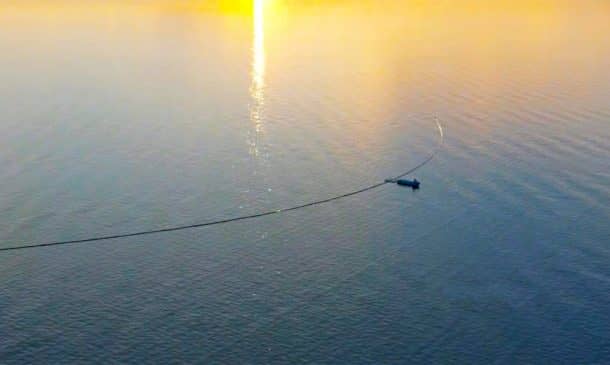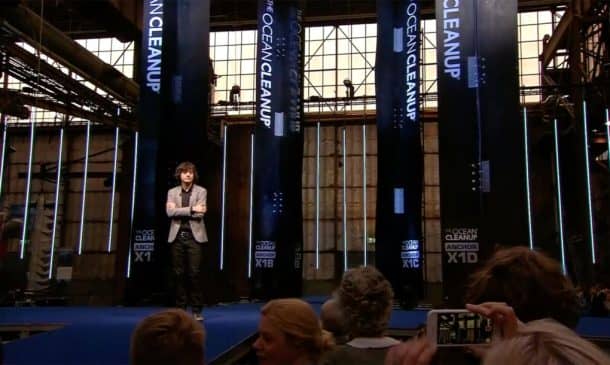The Ocean Cleanup has made a giant stride towards their noble mission to rid the Pacific of human garbage, as they announced exciting design changes to their technology from Werkspoorkathedraal exhibition in the Netherlands. CEO of the Ocean Cleanup, Boyan Slat, revealed the changes to their array which will improve their system to be more durable, require less maintenance and ultimately collect more plastic.
The earlier estimates meant that the technology could clean up 42 percent of the Great Pacific Garbage Patch in 10 years, but the latest upgrade will allow them to scoop up 50 percent of the patch’s plastic in half the time!
Slat previously made a promise to start cleaning up the Great Pacific Garbage Patch as soon as 2020, but he said he wouldn’t be able to keep the promise since the deployment will start within the next 12 months, which is two years earlier than first expected! The presentation was titled “The Next Phase,” where Slat gave a timeline of their progress starting from their inception around four years ago to today while commenting on the future.

The new technology is based on the phrase,
“To catch the plastic, act like the plastic.”
This means that an anchor attached to the cleanup array will tether the array to a deep water layer. The system will still move slower than plastic but will use the ocean currents to drift, rotate and orient itself in the direction of the plastic to scoop more garbage. The design change also allows the array to be more survivable as it will “go with the flow” and won’t have to withstand the full force of the ocean.

Slat said in his talk,
“Four years ago when I founded The Ocean Cleanup, everyone told me that there was no way to clean up what’s already out there, and the only thing you could do is avoid making it worse. But to me, that was just such an uninspiring message.

Don’t we all want a future that is better than the present? And now, we are able to show, with data, that we can actually make things better again. We can do this. We must do this. We will do this.”

Several parts of the array are already in production, and most of them will be completed within the next few months!


